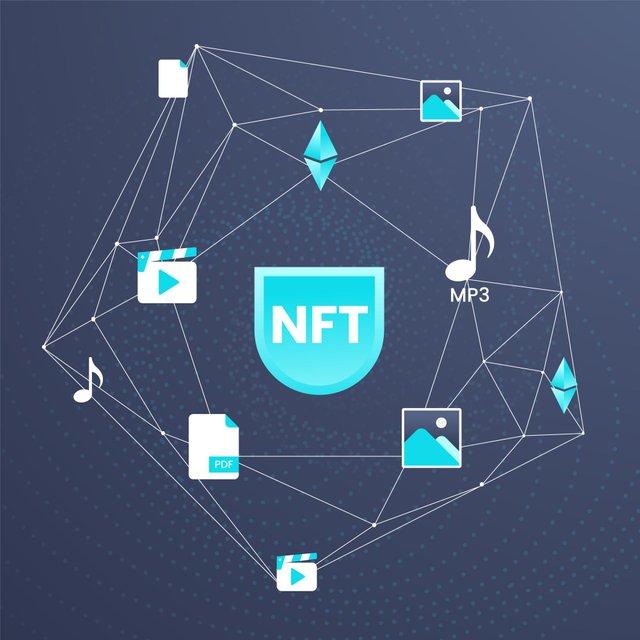
In recent years, a digital revolution has taken place, introducing new technologies that have transformed various industries. One such technology that has gained significant attention is Non-Fungible Tokens (NFTs). NFTs have become a buzzword in the digital realm, primarily associated with art and collectibles. However, the scope of NFTs extends far beyond the screen, as they find applications in real-life scenarios. This article will delve into the real-life applications of NFTs and explore how they are revolutionizing industries beyond the digital world.
Understanding NFTs
Before we explore the real-life applications of NFTs, it is essential to understand what NFTs are. Non-Fungible Tokens are unique digital assets that utilize blockchain technology to establish verifiable ownership and scarcity. Unlike cryptocurrencies such as Bitcoin or Ethereum, which are fungible, NFTs represent distinct items that cannot be exchanged on a one-to-one basis. Each NFT possesses a unique value and is indivisible.
Real-Life Applications of NFTs
Art and Collectibles
NFTs have gained significant traction in the art world, enabling artists to sell their digital creations directly to collectors. Through NFTs, artists can authenticate their work, establish provenance, and earn royalties whenever their art is sold in the future. This has opened up new avenues for artists, allowing them to reach a global audience and receive fair compensation for their creations.
Gaming and Virtual Worlds
The gaming industry has embraced NFTs, revolutionizing in-game economies and virtual asset ownership. NFTs enable players to own unique digital items, such as characters, skins, or virtual real estate, and trade them freely. This introduces a new level of ownership and value within games, creating opportunities for players to monetize their time and investment in virtual worlds.
Intellectual Property and Licensing
NFTs have the potential to transform how intellectual property is protected and licensed. By minting an NFT, creators can establish ownership and provide proof of authenticity for digital content, such as music, videos, or written works. NFTs enable creators to control the distribution and monetization of their intellectual property directly, reducing reliance on intermediaries.
Tokenized Real Estate
The concept of tokenized real estate involves representing physical properties as NFTs on the blockchain. This allows for fractional ownership, making real estate investments more accessible to a broader range of investors. NFTs enable efficient and transparent property transactions, reducing the barriers and costs associated with traditional real estate processes.
Digital Identity and Certification
NFTs can be used to establish and verify digital identities, creating a secure and decentralized system for identity management. By linking personal information to an NFT, individuals can have control over their data and prove their identity when needed. Furthermore, NFTs can be utilized for certification purposes, such as educational degrees or professional qualifications, ensuring tamper-proof records.
Impact on Industries
Art Industry
The art industry has experienced a significant transformation due to NFTs. Artists now have direct access to a global market, bypassing traditional gatekeepers. NFTs have empowered artists to monetize their digital creations, receive royalties, and establish direct connections with their audience. However, this shift also raises questions about the value and exclusivity of physical artworks.
Gaming Industry
NFTs have introduced a new level of ownership and value within the gaming industry. Players can own unique in-game assets, trade them freely, and potentially earn real-world value from their virtual investments. NFTs also enhance the play-to-earn model, enabling gamers to monetize their skills and time spent in virtual worlds.
Real Estate Industry
Tokenized real estate has the potential to revolutionize the real estate industry. By digitizing properties as NFTs, fractional ownership becomes feasible, allowing for broader participation in real estate investments. This can lead to increased liquidity, transparency, and efficiency in property transactions.
Sports Industry
NFTs have entered the sports world, offering new avenues for fan engagement and monetization. Sports teams and athletes can create unique digital collectibles, providing fans with exclusive experiences and memorabilia. NFTs also enable sports organizations to establish loyalty programs, reward fans, and create new revenue streams.
Fashion Industry
In the fashion industry, NFTs (non-fungible tokens) provide opportunities for designers to create digital fashion items that can be owned, traded and worn virtually. NFTs enable scarcity and uniqueness in the digital fashion space, allowing designers to monetize their creations and deliver personalized experiences to consumers. This is done via the NFT Marketplace for Digital Assets .
**Potential Benefits **
Benefits of NFTs
The adoption of NFTs brings several benefits to various industries. These include:
- Increased accessibility and inclusivity in previously exclusive markets.
- Direct artist-to-consumer relationships, eliminating intermediaries.
- Transparent ownership and provenance verification.
- New revenue streams for creators, including royalties and secondary market sales.
- Enhanced security and tamper-proof records through blockchain technology.
The Future of NFTs
As NFTs continue to gain momentum, their future looks promising. The technology has the potential to reshape various industries, providing new opportunities for creators, investors, and consumers. However, the adoption and regulation of NFTs will be crucial in ensuring a sustainable and inclusive ecosystem.
Conclusion
In conclusion, NFTs have extended their reach beyond the digital screen, finding applications in real-life scenarios. From art and gaming to real estate and identity verification, NFTs are revolutionizing industries, offering new possibilities for creators and consumers alike. As the technology evolves and matures, it will be fascinating to witness the full extent of its impact on our everyday lives.